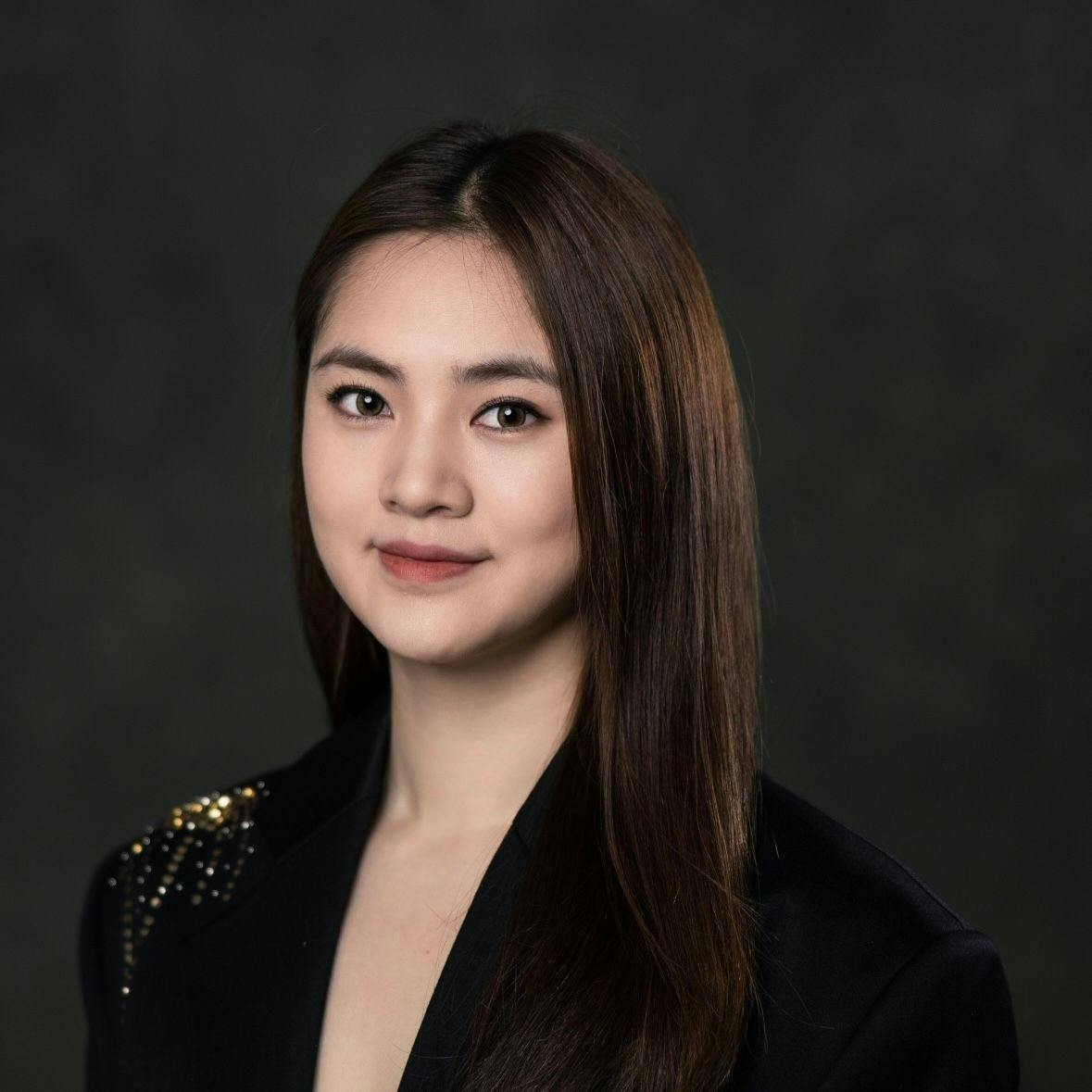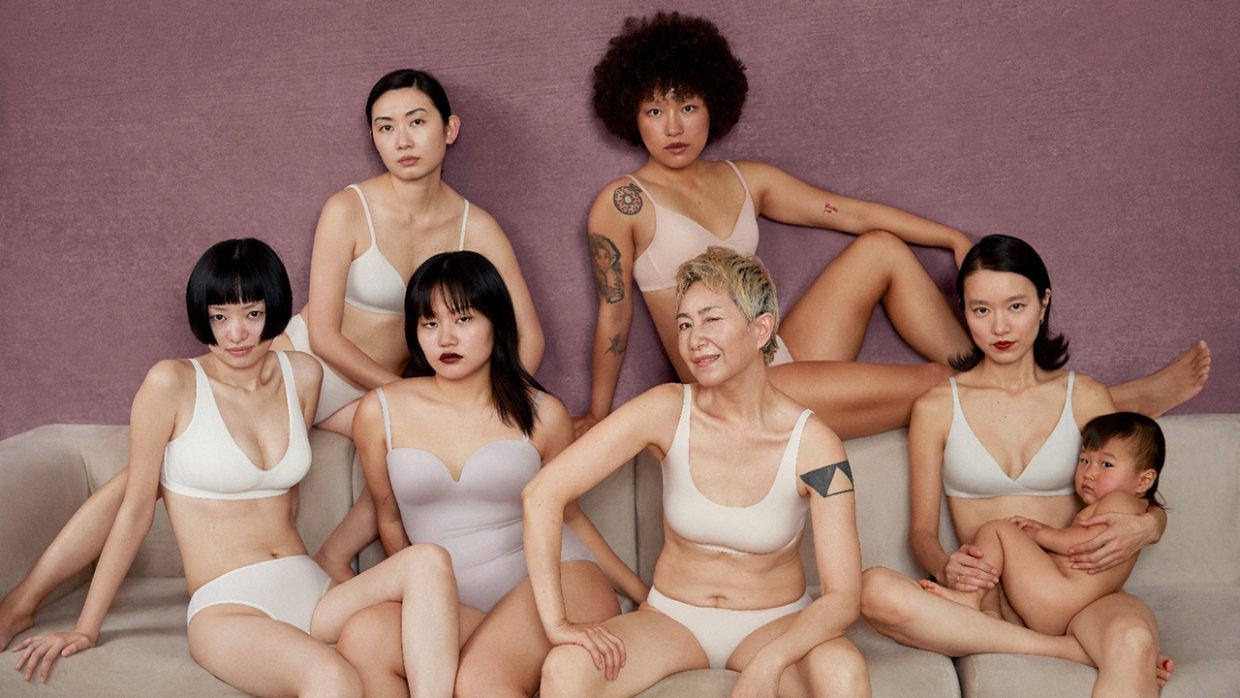Despite the quickly-booming market for homegrown brands in China, learning to develop and deliver brand value and identity is a common obstacle for many of them. Yet, Xiaolu Liu, the founder of the Chinese lingerie brand NEIWAI, seems to have a decent grasp of it. She started her career consulting in the female consumer products category, accumulating hand-on experiences and insights by helping big-name clients define their strategies. That led to her founding NEIWAI in 2012.
Liu described lingerie, which is often deemed the most invisible of accessories, as a method of self-expression. Thanks to Liu’s keen sense of the female consumer market and the brand’s goal to help liberate and empower women, NEIWAI went on to expand its collection of intimates, becoming a lifestyle brand with multiple categories that also include loungewear, activewear, and home collections.
Born as an online startup, the brand quickly tapped into both online and offline channels, which include stand-alone digital shops on WeChat and Tmall as well as more than 80 brick-and-mortar stores on the Mainland. The vision and organic growth of the brand have attracted investment from several top venture capital firms, including Qiming Venture Partners.
During fashion retail’s post-COVID-19 moment of digital transformation, NEIWAI stood out thanks to its blockbuster International Women’s Day campaign in March titled No Body Is Nobody and the second edition of its collaboration with independent designer brand XU ZHI in May. Liu spoke with Jing Daily about the shifting consumer market, NEIWAI’s unique communication strategies, and her outlook for NEIWAI in the long-term.
What’s the biggest challenge you’ve experienced since founding NEIWAI in 2012?#
Over the past eight years since NEIWAI was born, we’ve been exploring ways to find a balance between scaling-up and brand-building. It’s a challenging task for emerging brands in China’s market, as the domestic consumption climate and the capital market are generally impatient and expect rapid growth from brands. But I feel that building up a brand is a journey that asks for long-term dedication and accumulation. It’s crucial to keep that balance, especially when it comes to China, where the social media landscape is ever-changing.
Can you describe both the opportunities and challenges for DTC brands in China?#
In NEIWAI’s case, we observed two trends among younger local consumers that might benefit homegrown DTC brands. First, they’re showing a strong interest in homegrown brands, be it streetwear or other designs, and they’re more willing to purchase products made in China now. Second, they’re hungry for good design after being exposed to leading global brands on social platforms like Instagram — now they can tell if the brand is dedicated to making good products.
However, in the Chinese e-commerce landscape, DTC brands have to rely on third-party marketplaces such as Tmall and JD.com. Though online platforms bring invaluable opportunities for smaller brands in their early stages, there are dilemmas about how to drive sustainable growth, including how to develop intellectual property protection and pricing limits. One of our solutions has been to create offline channels where we can manage product pricing, the consumer shopping experience, and multi-channel sales.
What do you make of the domestic lingerie market shift, and how do you think the evolution of social media shape lingerie consumption?#
The most notable shift is younger consumer behavior. When NEIWAI was founded in 2012, the wireless bra sector that we prioritize was still a niche in China’s market. Functionality and sensuality were what most local consumers looked for. The turning point emerged around 2015 when more and more female consumers, from millennials to Gen Zers, started to attach more importance to their comfort. The wireless bra boom shows that today’s younger Chinese consumers have greater mental and physical self-awareness, which is relevant to the development of social media. The new generations of KOLs are quite vocal about body positivity and women’s empowerment, and that has significantly shaped Chinese consumers’ perception of underwear.
How did NEIWAI adapt its communication and marketing strategies to resonate with younger generations?#
I believe brands need to share more with customers than quality products, which is the basics, and that’s more about brand value. Thus, since the very beginning, our communication and marketing have been set on feminine values, whether it’s our dedication to women’s empowerment or how we encourage body diversity and positivity through our designs. Also, since lingerie is rarely shown off and is difficult to promote in an oriental cultural context, we decided to dig into the stories behind a woman's body and her self-awareness and hoped it would resonate with our customers.
Your “No Body Is Nobody” campaign has gone viral on social platforms and sparked a lot of online discussions. What was the inspiration for the campaign? And how did customers respond to it?#
The goal was to bring up body diversity as we expanded our previous niche of small sizes to more inclusive product lines. The documentary film featured in the campaign was condensed from in-depth interviews with normal women who went through various body shaming, from plus-size body shapes to bodies with scars. The campaign’s perception went beyond our expectations. Many of our social followers shared their personal experiences with us through comments or direct messages. The reason it’s been so well-received isn’t only because local women are open-minded and self-aware, but also because we aren’t dogmatic or pedagogical when we communicate with our customers, but prefer to be inspiring and encouraging.
Your recent collaboration with the homegrown fashion label XU ZHI was also very impressive. Can you share a bit more about the initiative and how you leveraged brand crossovers and collaborations?#
The series includes three editions — last year’s underwear, this summer’s swimsuit, and this winter’s loungewear. The collaboration is based on the two brands’ similar journeys that explore intimate relationships with the self: NEIWAI encourages embracing oneself inside-out, and XU ZHI addresses external self-expression. The first edition was well-received by our customers last year, and that motivated us to continue our partnership. I think collaboration allows us to bring newness from outside our primary lines, whether it’s with designs or product categories. We can add some avant-garde twists to our core products by teaming up with talents and brands in different areas.
How did the COVID-19 pandemic impact NEIWAI, and how did you respond?#
Both our online and offline businesses suffered in February and March because of lockdowns and negative consumer sentiment, but they have progressively recovered since late April. We took advantage of that time to prepare for the recovery and our offline expansion (our brick-and-mortar stores will increase from 80 to 150 stores over the second half of the year.)
Meanwhile, NEIWAI Active, our athletic line, has taken off during the quarantine period. It's ballet-inspired since the spirit of workout is consistent with our brand identity, which incorporates power and grace. In addition to featuring endorsements from the established ballerina Yuan Yuan Tan and fitness KOLs, we have hosted a variety of offline activities with local gym chains to help build up our community. But the opening of our new store in San Francisco, which has been in the works a while, had to be postponed due to the growing pandemic in the United States.
Can you share more about NEIWAI’s plan for globalization?#
We’ve been eyeing the US market for a long time, and San Francisco would be the entry point due to its large Chinese community. There is a big market for intimates designed for Asian female consumers.
Our global e-commerce site should debut in August, and the brick-and-mortar store will open after the pandemic. In the long-term, we hope to build NEIWAI into a globalized brand that represents Chinese identity. The European and Asia-Pacific regions are also on our agenda because many international buyers have been impressed with our brand consistency and how it’s distinct from many other homegrown brands.


